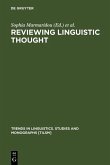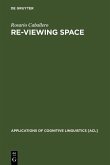Subjectification is a widespread phenomenon and has emerged as a most pervasive tendency in diachronic semantic change (Traugott) and in synchronic semantic extension (Langacker). Its importance is increasingly valued despite the fact that it is an area that has been treated differently by different scholars. One of the book's objectives is to generate a clearer understanding of the two major models of subjectivity, to see where they can meet but also where intrinsic differences present barriers to any integration. Another objective is to speculate on whether the notions of subjectivity and subjectification have reshaped our understanding of grammar.
The goals of the volume are the following:
- The volume brings together contributions dealing with particular areas of grammar in the framework of subjectivity and subjectification. Starting with Stein and Wright's 1995 edition, publications on the specific process have broadened the scope of this research. Indeed, the question 'how far have we come?', addressed in the introduction, has become central in reaching a clearer understanding of the above framework and even expanding it.
- Individual papers explore not only wider questions and implications on the theoretical status of subjectivity and subjectification in language, but are empirically supported by thorough and extensive data from different languages (Asian languages, German, Spanish, Greek, Dutch, English). These studies of particular areas of grammar (modals, adjectives) or of levels of analysis (syntax) can help implement or adapt the existing accounts of subjectivity made in the literature.
- The challenge for every single paper is to show whether the two major approaches (Langacker's and Traugott's) can possibly be integrated or whether they are fundamentally different. The papers also investigate into the questions whether we have a continuum from highly subjective to more objective, whether subjective need be opposed to objective, or whether subjective may also be understood in contrast to neutral (which is often the case in Traugott's examples of grammaticalization). Furthermore, the issue of intersubjectivity, i.e., putting the addressee's perspective onstage, is also discussed.
Dieser Download kann aus rechtlichen Gründen nur mit Rechnungsadresse in A, B, BG, CY, CZ, D, DK, EW, E, FIN, F, GR, HR, H, IRL, I, LT, L, LR, M, NL, PL, P, R, S, SLO, SK ausgeliefert werden.









